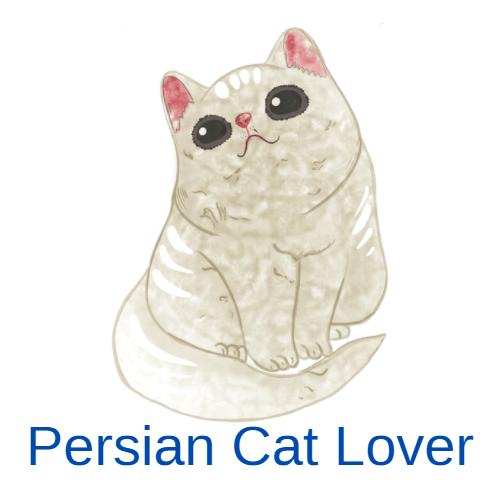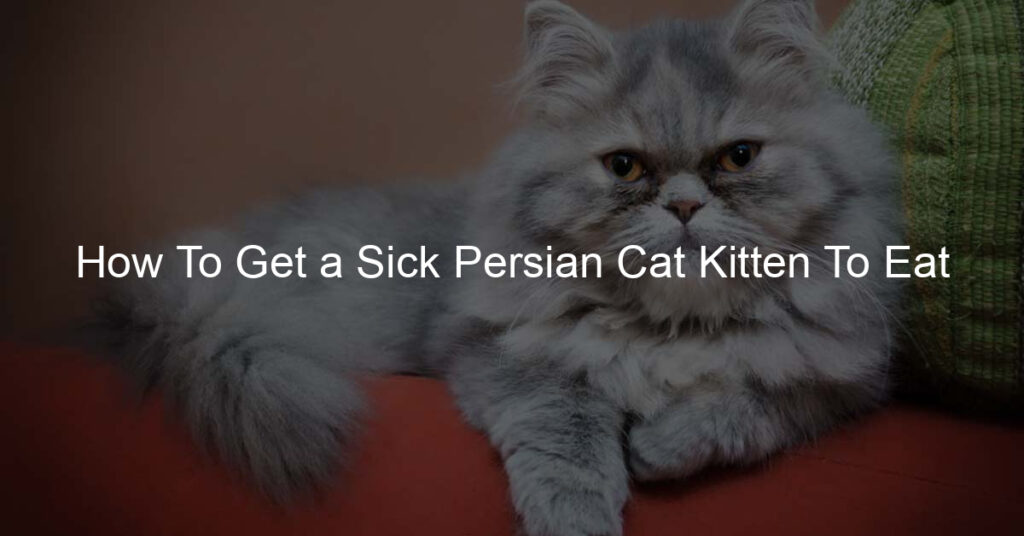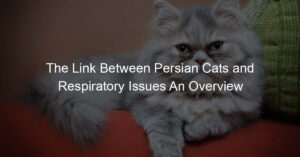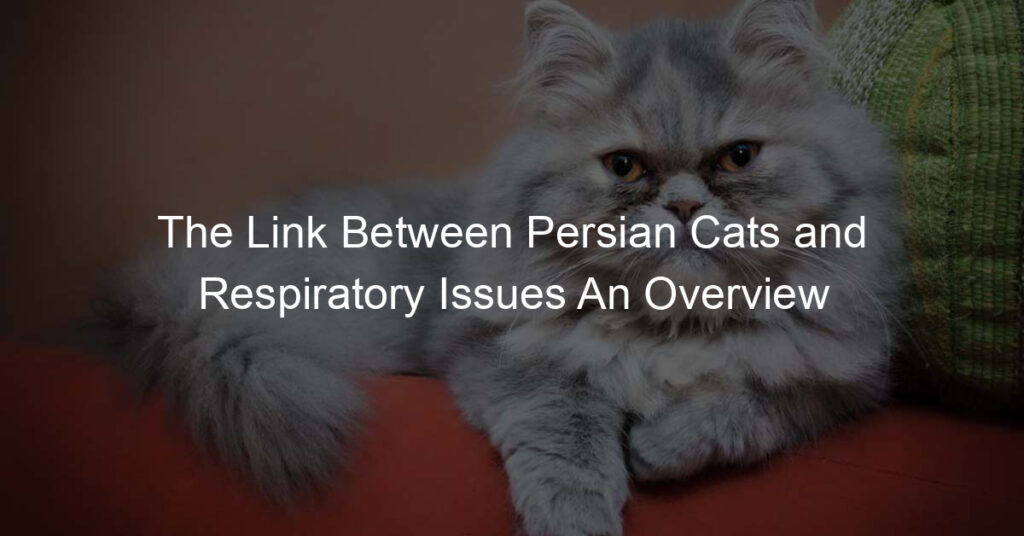If you have a sick Persian kitten that won’t eat, don’t despair. There are several things you can try to get your cat to eat again.
First, check with your vet to make sure there is no underlying medical condition causing appetite loss. If everything checks out OK, then it’s time to try some home remedies.
Below are a few suggestions for getting a sick Persian kitten to start eating again. With a little patience and perseverance, you should be able to get your furry friend back on track in no time!
Should I force a sick kitten to eat?
Forcing a sick kitten to eat can do more harm than good. A sick kitten’s appetite may be decreased or eliminated, and trying to feed them may be counterproductive to their recovery.
Feeding them may put stress on their bodies that they cannot handle at this time in their illness. Instead, it is important to consult with your veterinarian for advice on how to best care for the kitten during their illness and what you should feed them if anything at all.
How often should I syringe feed my sick cat?
When your cat is sick, ensuring they have all the nutrients and fluids necessary to get better is vital.
You can syringe feed them to give them the nourishment their body needs, but it’s important to figure out the right amount based on your cat’s individual needs and current health condition.
As for frequency, this will vary depending on your cat’s size and what food you feed them. For instance, kittens may require more frequent feeding than adult cats, while canned food may require more frequent feedings than dry food.
Additionally, if your vet has prescribed any special diet or medicines that must be administered through a feeding tube or syringe, they will let you know what the recommended feeding frequency is for those as well.
All in all, speaking with a vet about how often you should syringe feed your sick cat is essential, so asking a competent professional about it should be at the top of your list of things to do.
How long can a sick cat go without eating?
Health problems can cause cats to stop eating, and the amount of time a cat can go without food depends on its health and overall condition before stopping eating.
Cats can go up to two weeks without eating; if they go more than five days without eating, they may begin losing lean body mass due to a lack of protein and nutrition.
It is important to take your cat to a veterinarian immediately if he or she goes more than a few days without eating to prevent further complications such as malnourishment, organ damage, and dehydration.
Ultimately, it is always ideal for an ill cat to start eating again as soon as possible so the cause of its illness can be addressed and treated appropriately.
How do you rehydrate a sick kitten?
Taking care of a sick kitten is not easy, and you want to make sure that it gets all the proper nutrients it needs to recover. One of the most important things to do when your kitten is sick is to make sure it rehydrates. There are a few ways to do this.
An oral rehydration fluctuation made from electrolytes, sweeteners, and water can be fed with an eyedropper or syringe. Kittens may also be encouraged to sip fluids by dipping their paws in them and licking them off.
Chicken broth, Pedialyte, or baby formula can also be used if that’s more appealing to your kitten’s palate.
After the kitten has been dehydrated, additional nutrients can be introduced slowly, such as canned food, baby food, or gruel, depending on how mild the illness is. Keeping up with hydrating them should help them get back on their feet in no time!
How do you treat a sick kitten without going to the vet?
Taking care of a sick kitten can be difficult, especially without visiting the vet. However, several steps can be taken to ensure that the kitten gets better.
First and foremost, provide a warm, comfortable place to rest, as this will help with their recovery and make them feel safer. It is also important to ensure that the kitty is getting an adequate amount of liquids—ideally through wet food—so that they stay hydrated.
Additionally, if you suspect an infection, it is beneficial to clean the infected areas with an anti-bacterial solution and prevent your kitten from licking or scratching at those areas.
Lastly, keep an eye out for signs such as labored breathing or visible parasites. If any of these conditions exist or if your pet’s condition continues to deteriorate, you may need to take more drastic measures, such as consulting with a veterinarian.
Last Words About How To Get a Sick Persian Cat Kitten To Eat
Getting a sick Persian cat kitten to eat can be a challenge when they are under the weather. Taking the time to properly care for a sick Persian cat kitten is key to ensuring their eating habits don’t deteriorate further due to illness or fatigue.
Staying diligent and the patient will be necessary for success in getting your beloved pet back on its feet and back to normal health. Though it may seem like a daunting task, with the right planning and lots of patience, your Persian cat can easily be healthy again soon!














